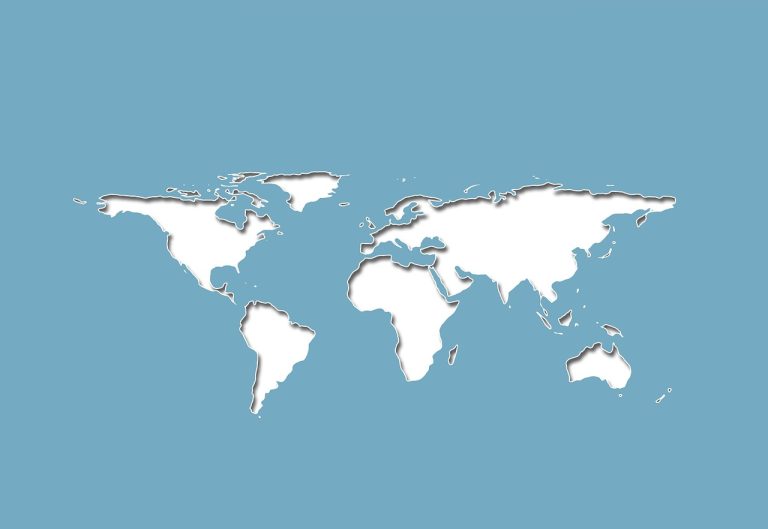
Exposing the Truth: The Real Impact of the Philippine’s Anti-Drug Campaign
Since its inception in 2016, the Philippine’s anti-drug campaign has been a topic of intense debate, both locally and internationally. Launched by President Rodrigo Duterte, the campaign aimed to eradicate illegal drugs and criminal activities associated with them. However, this initiative has faced widespread criticism for its methods and consequences. In this article, we will delve into the multifaceted impact of this controversial campaign, exploring its effects on society, governance, and international relations.
The Origins and Objectives of the Anti-Drug Campaign
The anti-drug campaign was one of the cornerstone policies of President Duterte’s administration. Promising a swift and decisive crackdown on drug-related crimes, Duterte’s approach was marked by aggressive rhetoric and a commitment to using all means necessary to achieve his goals.
The primary objective was to dismantle the drug trade networks that were believed to be deeply embedded in various sectors of society. This included targeting not only small-time users and street-level dealers but also high-profile drug lords and corrupt officials. The campaign’s broader aim was to restore peace and order, improve public safety, and boost economic development by creating a drug-free environment.
Methods of Implementation: A Controversial Approach
The methods employed in the anti-drug campaign have been a significant source of controversy. The most criticized aspect is the alleged endorsement of extrajudicial killings. Numerous reports from human rights organizations, such as Human Rights Watch, have highlighted the alarming number of deaths linked to police operations and vigilante-style executions.
In addition to questioning the moral and ethical implications of such extrajudicial measures, critics argue that these actions undermine the rule of law and due process. The campaign has been accused of disproportionately targeting the poor, with many of the casualties being small-time drug users from impoverished communities. This has raised concerns about social injustice and the potential for systemic abuse.

Impact on Society: Fear and Polarization
The anti-drug campaign has had a profound impact on Philippine society, particularly in terms of public perception and community dynamics. On one hand, there is a segment of the population that supports Duterte’s hardline stance, viewing it as a necessary evil to achieve long-term safety and security. This faction argues that the campaign has led to a decline in crime rates and has instilled a sense of discipline and order.
Conversely, there is a growing sense of fear and distrust among those who feel vulnerable to the campaign’s aggressive tactics. Families of victims and human rights advocates are increasingly vocal about the terror and trauma experienced by affected communities. The campaign has also contributed to a polarized society, with sharp divisions between supporters and detractors of the president’s policies.
Economic Ramifications: A Double-Edged Sword
The impact of the anti-drug campaign on the Philippine economy is a subject of extensive debate. Proponents argue that by curbing drug-related crimes, the initiative has created a more stable and predictable environment for business and investment. They claim that a reduction in crime can lead to improved productivity and economic growth.
However, economists and analysts, such as those from the Economist, caution against overlooking the potential negative effects. The campaign has led to increased government spending on law enforcement and incarceration, diverting resources from other critical areas such as education, health care, and infrastructure. Additionally, the damage to the country’s international reputation could deter foreign investment and tourism.
International Response and Diplomatic Relations
The Philippine’s anti-drug campaign has attracted significant international attention and criticism. Organizations such as the United Nations and Amnesty International have condemned the human rights violations associated with the campaign. They have called for independent investigations and accountability for those responsible for extrajudicial killings.
These criticisms have strained the Philippines’ diplomatic relations with several countries and international bodies. While some nations have expressed support for Duterte’s anti-drug policies, others have imposed restrictions or issued warnings regarding travel and business dealings with the Philippines. This diplomatic fallout highlights the delicate balance between domestic policy priorities and international obligations.

Conclusion: A Call for Comprehensive Reform
The Philippine’s anti-drug campaign, while well-intentioned in its aim to eradicate illegal drugs, has revealed a complex and multifaceted impact on various aspects of society. The campaign’s controversial methods have sparked significant debate about human rights, social justice, and governance. As the country continues to grapple with these challenges, there is a growing consensus on the need for a more holistic and sustainable approach to drug-related issues.
Future strategies must prioritize respect for human rights, transparency, and accountability. This includes strengthening the judicial system, investing in rehabilitation and education programs, and fostering international cooperation to address the root causes of drug addiction and trafficking. Ultimately, achieving a lasting solution to the drug problem in the Philippines will require a concerted effort from all stakeholders, guided by a commitment to uphold the dignity and well-being of all citizens.
A Shift Towards Rehabilitation and Prevention
As the anti-drug campaign continues to evolve, there is an increasing recognition of the importance of rehabilitation and prevention in addressing the drug crisis. Experts argue that punitive measures alone are insufficient to tackle the complex socio-economic factors that contribute to substance abuse. This has led to calls for the implementation of comprehensive drug education and rehabilitation programs.
Rehabilitation centers, both government-funded and private, are critical in providing support and treatment for individuals struggling with addiction. Initiatives aimed at reintegrating former drug users into society—such as vocational training, counseling, and community support programs—are essential components of a balanced approach to drug policy. Furthermore, public education campaigns that focus on the dangers of drug abuse and promote healthy lifestyles can play a pivotal role in prevention.
Community-Based Approaches and Grassroots Movements

Grassroots movements and community-based organizations have emerged as vital players in the fight against drug abuse in the Philippines. These groups often work at the local level, providing much-needed services and support to individuals and families affected by drug-related issues. By fostering community engagement and empowerment, these initiatives contribute to building resilience and social cohesion.
Community-based approaches focus on tailored solutions that address the specific needs and contexts of different regions. This may include setting up local support networks, facilitating dialogues between law enforcement and residents, and promoting alternative activities for youth. By involving community members in the decision-making process, these initiatives can lead to more effective and sustainable outcomes.
The Role of Technology and Innovation
In the digital age, technology and innovation offer new avenues for addressing the challenges posed by drug abuse. From data analytics to mobile health applications, technology can enhance the efficiency and reach of drug prevention and treatment programs. For instance, mobile apps that provide real-time information on treatment options and support networks can help individuals access the resources they need more easily.
Moreover, technology can aid law enforcement agencies in tracking and dismantling drug trafficking networks. Advanced surveillance systems, data sharing platforms, and collaborative tools can improve coordination and intelligence gathering efforts. By leveraging technology, stakeholders can develop more targeted and informed strategies to combat drug-related activities.
Looking Forward: Building a Resilient Future
The challenges posed by the anti-drug campaign in the Philippines underscore the need for a comprehensive and multifaceted response. As the country moves forward, there is an opportunity to learn from past experiences and build a more resilient future. This involves fostering a culture of transparency, accountability, and collaboration among all stakeholders.
International cooperation remains a critical component of this effort. By partnering with global organizations and other nations, the Philippines can access valuable resources, expertise, and support. This collaborative approach can facilitate knowledge exchange, capacity building, and the development of best practices in drug policy and enforcement.
Conclusion: A Path Towards Sustainable Solutions

In conclusion, the real impact of the Philippine’s anti-drug campaign extends beyond the immediate goal of eradicating illegal drugs. It has revealed the complex interplay of social, economic, and political factors that must be addressed to achieve sustainable solutions. Moving towards a more balanced and humane approach involves prioritizing rehabilitation, prevention, and community engagement, while ensuring respect for human rights and the rule of law.
As the nation continues to navigate this critical issue, the lessons learned from the anti-drug campaign can serve as a guide for future policy development. By embracing a comprehensive and inclusive strategy, the Philippines can pave the way for a safer, healthier, and more prosperous society for all its citizens.
Empowering Local Governments and Communities
Empowering local governments and communities is essential in crafting a sustainable and effective response to drug-related challenges. Local authorities are on the front lines, directly interacting with the communities affected by drug issues. They possess unique insights into the specific needs and dynamics of their areas, making them well-positioned to implement tailored solutions.
Decentralizing drug policy initiatives allows for more adaptive and flexible approaches. Local governments can develop and execute programs that are culturally and contextually relevant, ensuring greater community buy-in and participation. This might include localized education campaigns, community policing strategies, and support for grassroots organizations working to mitigate the impact of drug abuse.
The Importance of Monitoring and Evaluation
To ensure the effectiveness and efficiency of anti-drug initiatives, robust systems for monitoring and evaluation are crucial. By systematically assessing the outcomes of various programs and policies, stakeholders can identify areas for improvement and successes worth replicating. This data-driven approach allows for evidence-based decision-making and resource allocation.
Continuous feedback loops enable policymakers to adapt and refine strategies in response to changing circumstances and emerging trends. Regular evaluations also foster transparency and accountability, building public trust and confidence in the government’s efforts to address drug-related issues. This process encourages ongoing dialogue and collaboration among all stakeholders involved.

Fostering Resilience through Education and Employment
Education and employment opportunities are powerful tools in the fight against drug abuse. Providing individuals with access to quality education and skills training can equip them with the knowledge and capabilities needed to pursue productive and fulfilling lives. By investing in education, the Philippines can reduce the vulnerability of its citizens to drug-related influences and activities.
Similarly, creating employment opportunities can act as a deterrent to drug involvement. Economic empowerment through job creation and support for entrepreneurship can provide individuals with legitimate means of earning a livelihood. This not only enhances personal and community resilience but also contributes to overall economic growth and stability.
The Role of International Partnerships
International partnerships play a crucial role in enhancing the effectiveness of the Philippines’ anti-drug efforts. By collaborating with foreign governments, international organizations, and non-governmental entities, the Philippines can leverage a wealth of resources, expertise, and best practices. These partnerships can facilitate capacity building, technical assistance, and joint initiatives aimed at curbing drug trafficking and abuse.
Furthermore, international cooperation can strengthen law enforcement efforts by improving cross-border collaboration and intelligence sharing. This is particularly important in tackling transnational drug networks that operate across multiple jurisdictions. By working together, countries can develop more comprehensive and coordinated responses to the global drug problem.
Conclusion: A Holistic Vision for the Future
As the Philippines continues to confront the challenges posed by drug abuse and trafficking, it is essential to adopt a holistic vision that encompasses a wide range of strategies and stakeholders. The real impact of the anti-drug campaign has underscored the need for balanced approaches that prioritize human rights, community involvement, and sustainable development.
By fostering resilient communities, empowering local governments, and embracing international cooperation, the Philippines can chart a path towards a safer and more prosperous future. It is through collaboration, innovation, and compassion that the nation can effectively address the complex and multifaceted issues related to drugs and build a society that upholds the dignity and well-being of all its citizens.






